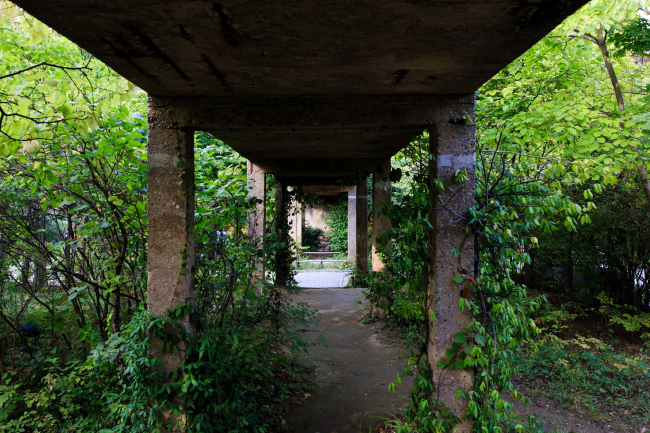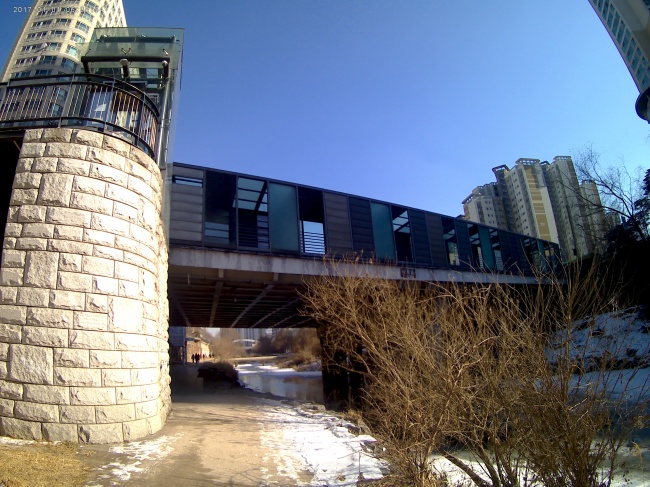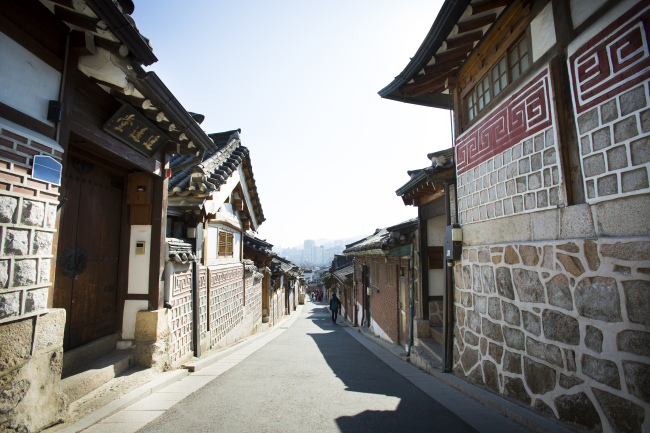Cars and people are not the only things the megalopolis is bustling with, as the fall has the Korean capital colored scarlet with falling leaves accompanying the cool breeze.
There are a number of walking spots in the city for the season to be savored.
Dalmaji Park
The Chuseok holidays that ended Wednesday were marked by the full moon.
Dalmaji Park, which means “moon welcoming park,” got its name for being one of the best places in Seoul to enjoy the sight of the moon.
Located between Oksu-dong and Geumho-dong, it is adjacent to Oksu Station and the Han River. It is hard to get a parking spot, so taking the subway is recommended, particularly as it is just a few steps from Oksu Station.
The park is open 24 hours, is free of charge and is a location often used to shoot TV drama and films.
This is where the lead couple in 2003 romance film “...ing” go on a date, in a beautiful scene with the Han River and bridge Donghodaegyo.
 |
Seonyudo ((UTO image) |
Seonyudo Park
Speaking of spots loved by filmmakers, Seunyudo Park in the middle of the Han River is another spot popular among Seoulites, and also makes frequent movie appearances.
The ecological water park is formed on the island of Seonyudo and is accessible via the bridge Yanghwadaegyo. It is around 1.5 kilometers from Dangsan or Hapjeong stations on Line No. 2, but a better way would be to visit by bus Nos. 603, 761, 5714 or 7612, which stop right at the park.
There is a Seonyudo Station on Line No. 9, which is misleading because the station is actually about a kilometer from the park.
The beautiful park has one of the best views of the Han River and its bridges, including the Seonyudo Bridge that connects the island and nearby Yanghwa-dong. Various attractions including four different botanical gardens with different themes are available along the way.
Cheonggyecheon
Gwanghwamun, among the most bustling spots in the city, is also one of its most popular dating spots.
The stream Cheonggyecheon runs right through the heart of the city, and the walking trail starts near Gwanghwamun, in Mugyo-dong. It is always busy with people, from couples and families to the office workers from surrounding buildings looking to enjoy a waterside stroll.
It is just five minutes’ walk from the Gwanghwamun, City Hall, Jonggak, Jongno 3-ga stations, and Cheonggye Square in Mugyo-dong seems to always be hosting events.
 |
Cheonggyecheon (UTO image) |
It is not far from the palace Deoksugung, and the walk along its stone walls to Jeong-dong is another popular walking course.
Around Gwanghwamun, it is also easy to spot people walking around in traditional Korean hanbok, which can be rented from shops near Gyeongbokgung.
Bukchon Hanok Village
When it comes to tradition, the hanok village bristling with traditional Korean homes in Bukchon is another place people just enjoy walking around.
Bukchon is located around a few minutes’ walk from Anguk Station on Line No. 3, between Gyeongbokgung and Changdeokgung. Bukchon -- which means northern village -- refers to the north of Cheonggyecheon where the rich and powerful of the Joseon era lived.
Today, it is one of the most popular tourist spots in the city, and a lot of fun to walk around.
 |
Bukchon Hanok Village (UTO image) |
Its main attraction are the buildings, many of which retain their traditional looks. Guesthouses, restaurants, teahouses and shops for trinkets are scattered in every corner.
Keep in mind that walking along the steep hills and narrow streets may be physically taxing for some. Parking there is absolutely a nightmare, as there isn’t an official parking lot and restaurants typically only provide the tiniest of parking spaces.
By Yoon Min-sik (
minsikyoon@heraldcorp.com)










